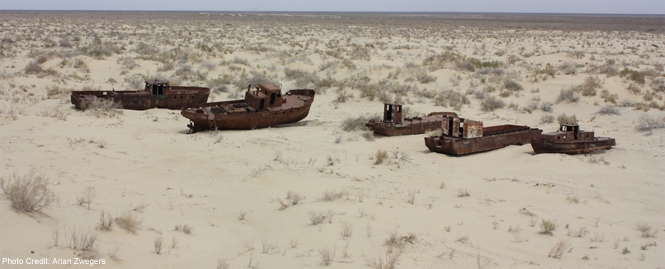Global Water Crisis Analysis

Freshwater scarcity is one of this century’s most pressing challenges, but it is surprisingly hard to describe the nature of the "global water crisis." GFI staff are the first to systematically analyze and classify water crises around the world.
Their research finds that water systems have a limited set of patterns or “syndromes,” which can be classified into one of four categories – unsustainability, vulnerability, chronic scarcity or adaptation. These syndromes have their root causes in just a few factors that influence demand, supply, infrastructure and governance – a finding that challenges long-held views that freshwater issues require highly individualized solutions.
A GFI meta-analysis of studies on water crises around the world suggests that types of water crises are finite, even though they may have evolved differently. The cases exhibited different outcomes for human wellbeing that could be grouped into a six “syndromes”: groundwater depletion, ecological destruction, drought-driven conflicts, unmet subsistence needs, resource capture by elite, and water reallocation to nature. For syndromes that were not successful adaptations, three characteristics gave cause for concern: (1) unsustainability—a decline in the water stock or ecosystem function that could result in a long-term steep decline in future human wellbeing; (2) vulnerability—high variability in water resource availability combined with inadequate coping capacity, leading to temporary drops in human wellbeing; (3) chronic scarcity—persistent inadequate access and hence low conditions of human wellbeing.
All syndromes could be explained by a limited set of causal factors that fell into four categories: demand changes, supply changes, governance systems, and infrastructure/technology. This realization promises a future in which solutions can be transferred among regions, and helps identify the key question that should be addressed. By considering basins as members of syndrome classes and tracing common causal pathways of water crises, water resource analysts and planners might develop improved water policies aimed at reducing vulnerability, inequity, and unsustainability of freshwater systems.